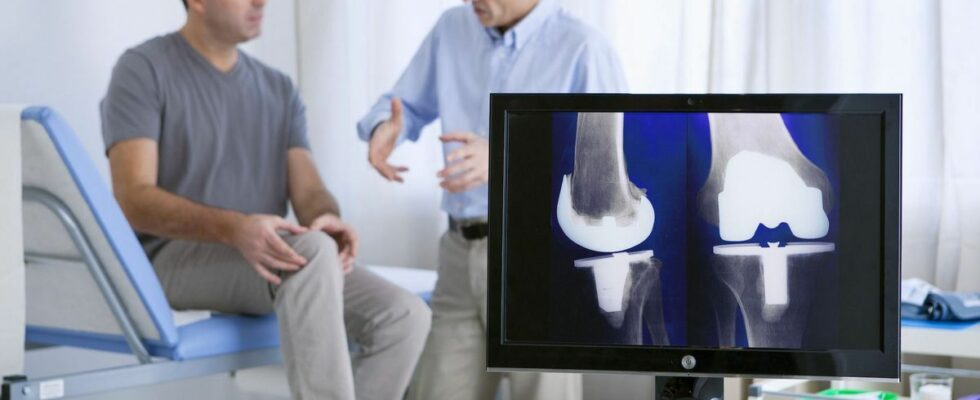Published on
updated on
Reading 2 min.
in collaboration with
Marc Lévêque (neurosurgeon)
For World Pain Day, Doctissimo is focusing on post-operative pain with Dr Marc Lévêque, neurosurgeon and pain specialist. He points out failures in the care of too many patients who suffer after surgery.
“Between 5 and 30% of operated patients suffer from chronic pain. begins Dr. Marc Lévêque, neurosurgeon and pain specialist. “And for 5 to 10% of these patients, this pain has a strong impact on their professional life, with psychological but also social repercussions. Knowing that each year, between 7 and 9 million surgical procedures are performed, chronic pain therefore affects several thousand patients. A real public health issue that is largely underestimated.
Chronic post-operative pain: who are the patients at risk?
According to our expert, we know the criteria for identifying patients who are more likely to suffer from chronic pain after a surgical procedure. He specifies the 6 main ones:
- The female gender : women are more affected, for hormonal reasons, by chronic pain than men;
- Young age : this has been observed, young patients also have more risks than their elders;
- Exposure to pain : a patient who has had endometriosis, for example, or suffers from migraines has increased sensitivity to pain, because “pain calls for pain” recalls Marc Lévêque;
- Long-term exposure to opioids preoperatively : this is what we call opioid hyperalgesia, says our expert. This increases the risk of chronic pain after the procedure;
- Psychological fragility : if the patient is anxious or depressed, or is experiencing particular circumstances, we know that this also increases the risk, because the pain has a bio-psycho-social dimension, that is to say it affects the body, but also the mind and presents social consequences on the individual (loss of work, divorce, social isolation, etc.)
- And finally, the fact of reoperate the same site : “Cit adds fuel to the fire“in a way,” adds Marc Lévêque.
Which surgeries cause the most chronic pain?
Chronic pain also occurs following certain procedures. The most affected are the following surgeries:
- Thoracotomythat is to say the opening of the thorax, for open heart surgery;
- Inguinal hernia treatment ;
- There total knee prosthesis ;
- There mastectomythat is to say the removal of a breast.
“Among the other criteria we find the intervention lasting more than three hours. All these elements promote the chronicization of pain” adds the neurosurgeon.
Dr. Marc Lévêque deplores the current treatment of chronic pain patients. “While 60% of patients are operated on in the private sector, 4/5ths of pain centers are public, and there are too few of them. In addition, algology is a discipline that is too little taught, while paradoxically, pain is the first reason for consultation with the general practitioner.“.
For the specialist, the surgeons “also neglect this aspect, focusing more on the surgery and its goal (removing a tumor for example) than on post-operative pain.”
According to Marc Lévêque, we should better screen patients at risk, to treat them early, in pain centers. “The earlier the pain is treated, the more likely we are to eradicate it. Finally, the care pathway needs to be improved with comprehensive care including a medicinal approach and non-medicated“.
And as our expert points out, the subject deserves special attention. “Pain affects at least 500,000 patients each year, it is a real public health problem” he concludes.

